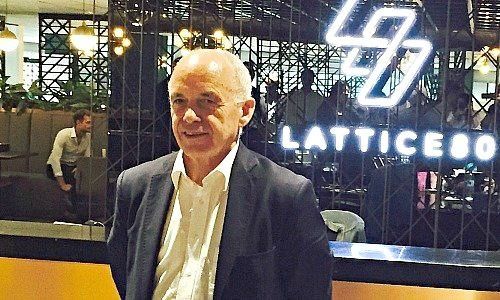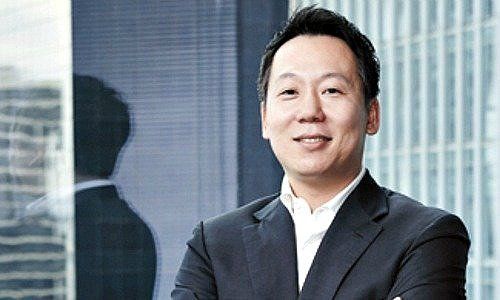In almost no time, a former hedge-fund manager has built the world’s biggest fintech hub – Lattice80. He is convinced that his strategy will work in other financial markets too, including in Switzerland.
The location is a dream for fintechs, both for entrepreneurs and for visitors: the banking district of Singapore, close to UBS, Deutsche Bank, DBS and OCBC. Lattice80 takes up the best of 3,000 square meters of office space on two floors, providing space for work stations and events alike.

During a visit of finews.asia at Lattice80, there’s a nice buzz about the place. Since its foundation in November of 2016, Lattice80 has attracted 85 fintech startups to its premises. More have shown an interest, but space is limited so far, says founder and CEO Joe Seunghyun Cho regretfully.
Ministers on Visit
But even with its current limitations, Lattice80 is the biggest fintech hub in the world, started from scratch a little over half a year ago. Cho’s idea evidently is attracting a lot of interest from across the globe. More than 100 countries have been in touch and representatives of Australia and Luxembourg as well as the prime minister of Holland and Switzerland’s Ueli Maurer (pictured below) have visited.

Lattice80 has turned into a force in a fledgling industry that feeds of data, know-how, networking and startups. No surprise then that regulators and bankers are flocking to Cho’s offices to get in touch, be inspired and contact new firms.
Not a Proper Company
Lattice80 is a special kind of fintech hub. «We aren’t merely a co-working-space or fintech accelerator,» says Cho. «And we aren’t actually a proper company either, but more of a private independent organization that aims to be at the pulse of the fintech and startup community in Singapore and the whole world.»
It doesn’t really sound like the hedge-fund manager he was. The citizen of South Korea obviously developed a business model for his hub, but mainly to cover the costs.
Supporting Others to Profit From Boom
Lattice80 isn't about making a profit. «We don’t want to take advantage of the fintechs, which are with Lattice80,» Cho said. He doesn’t demand a stake or exclusive rights from his partners. «Our aim can best be described by wanting to support others to profit from the fintech boom.»

In other words: Cho is building a fintech community based in Singapore, which soon will expand to cities across all continents.
Switzerland as a European Hub
Cho wants to quickly expand with Lattice80, reproducing the concept through a franchising system. Switzerland, one of the target markets, has a useful fintech regulation, Cho says: «We think that Switzerland is ready for this. The relevant conditions and appreciation of innovation exist to accompany an encompassing development process and to potentially become a fintech hub within Europe.»
Scaling is the buzzword at Lattice80. Ten fintech hubs with 100 startups each would give the brand a theoretic global market share of 10 percent.
Cho of course denies pursuing a competitive strategy: «We don't believe in competition. We are here to help.»
A Win-Win-Situation
The concept provides fintechs with cheap work stations and access to the financial market and to regulators. Authorities are able to get innovative know-how and banks have an easy and direct access to ideas and concepts that may shape their future.
«Big financial investors such as Goldman Sachs or hedge funds simply don't have the structures to invest in fintech startups,» says Cho. «That's why they come to us, because we have the daily contact and relevant market data to do a simple due diligence.»
The structure of Lattice80 covers the main interests of the industry. And Cho isn’t entirely free of a competitive edge: «That way will be able to dominate the value-added chain of the fintech industry.»



























